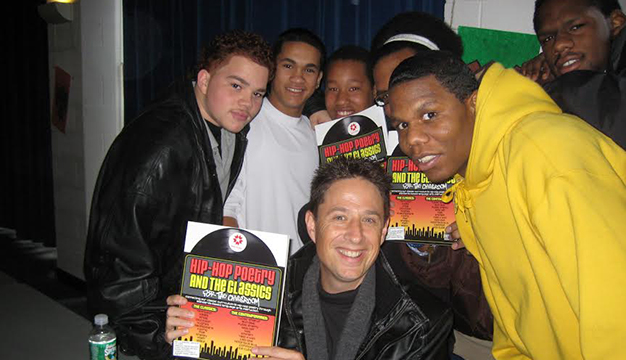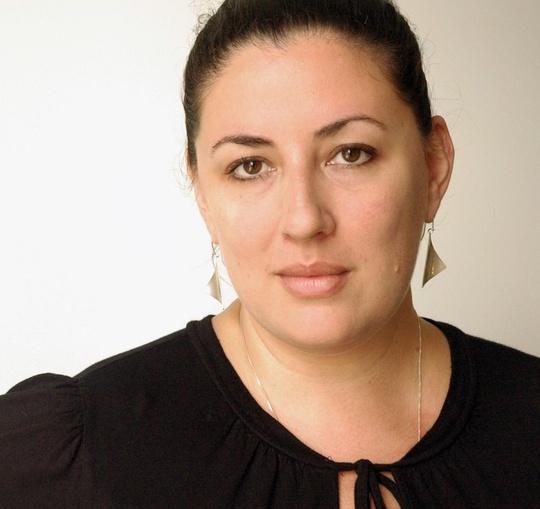As a bright-eyed and bushy-tailed new English teacher, it did not take me too long to begin muttering to myself, “Why are so many of my students so reluctant to embrace books?”
Actually, using the word “reluctant” is a euphemism. My students overtly HATED books. And why not, I soon discovered. Many of them read years below their grade level, suffered a personal history of unequivocal failure with the written word, and had been perpetually ostracized, shamed, and belittled for their ability (or lack thereof) to work with black ink on a rectangular page ever since they could remember.
Action-adventure movies? Now those spoke to them. Downloading music while texting with friends on their cell phones? Now that engaged them. Deconstructing fiction as we analyzed the literary device of similes? Some days I could actually hear the snoring before their heads hit the desks.
Then, one day, I used hip-hop.
Using hip-hop in the classroom isn’t a gimmick or a hook; it’s research-based, cutting-edge US education that has been recognized as efficacious by the US Department of Education, Ivy League universities, and the most significant group of people—real classroom teachers who work on the front lines in US classrooms each and every day.
From the very first moment I announced what we’d be doing, I had one hundred percent engagement. Even from the kids in the back row—you know the ones I’m referring to: the asocial, brooding, anti-authority kids who always wear sweatshirt hoodies draped over their heads like Obi-Wan Kenobi from Star Wars. It turned out that when they were engaged in the topic at hand, they showed themselves to be intelligent, thoughtful, perceptive students with definite points of view on a whole host of topics, and eager to share their thoughts. Needless to say, I was both surprised and impressed.
As Michael Cirelli and I note in the introduction to our new book, Hip-Hop Language Arts (Street Smart Press, 2015), “Using hip-hop in the classroom isn’t a gimmick or a hook; it’s research-based, cutting-edge US education that has been recognized as efficacious by the US Department of Education, Ivy League universities, and the most significant group of people—real classroom teachers who work on the front lines in US classrooms each and every day.”
Tapping the power of hip-hop education changed my life. Student engagement in my classroom rocketed, which led to student achievement rocketing, which led to me being named California Teacher of the Year. Just amazing!
The data-driven, proven methodologies in Hip-Hop Language Arts have created learning tools for 21st-century students who are often marginalized and have few opportunities to cultivate their own innate literacies. And all of our work begins with the smart and effective implementation of standards-based lesson plans that have been constructed around three inviolable principles:
- no profanity,
- no misogyny,
- no homophobia.
Click here to find a standards-based lesson plan from the book that uses hip-hop pedagogy to teach students how to make a claim and—through a series of questions—support it with textual evidence. Theory is great, but when the bell rings, we know that teachers need actual lesson plans they can trust. The lessons in Hip-Hop Language Arts are where the rubber meets the road, the needle meets the record, and the classics meet the contemporaries. We invite you to try it in your own classroom.
Michael Cirelli’s newest collection, The Grind, has been described by Terrance Hayes as “straight-forward, straight up, grace.” He is also the author of Everyone Loves The Situation, a finalist for the Paterson Poetry Prize; Vacations on the Black Star Line; and Lobster with Ol’ Dirty Bastard, which was a New York Times bestseller from an independent press. His work has appeared in The Best American Poetry, Hanging Loose, and Texas Review, among other publications. He is the executive director of Urban Word NYC, and has authored two poetry curricula, Poetry Jam (Recorded Books, 2010) and Hip-Hop Poetry & the Classics. He teaches courses on hip-hop and critical literacy at New York University, Michigan State University, and the University of Wisconsin, and has appeared on HBO’s Def Poetry Jam and Brave New Voices.
Alan Sitomer is the author of nineteen books for students, teachers and parents, including two books co-authored with Michael Cirelli that harness the power of hip-hop pedagogy. You can learn more about the work he does in the field of hip-hop pedagogy at StreetSmartPress.



